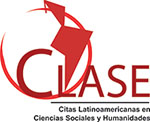Aplicación de la Inteligencia Artificial en la Educación Superior
DOI:
https://doi.org/10.23857/dc.v9i3.3488Palabras clave:
Inteligencia artificial, Educación, Aprendizaje adaptativo, Curación de contenidoResumen
La inteligencia artificial ofrece múltiples beneficios como herramienta para mejorar y transformar la educación. Al carecer de prejuicios, puede personalizar la enseñanza sin excluir estudiantes por género, raza u origen. Mediante el análisis de datos, filtra contenidos y recomienda aquellos más apropiados para cada individuo, evitando información irrelevante o falsa. Además, asiste a docentes en tareas como la planificación de lecciones y la evaluación de alumnos, optimizando su labor. Incluso es capaz de personificar eventos y personajes históricos, explicándolos desde una perspectiva enriquecida y atractiva para los estudiantes. Sin embargo, es importante considerar los desafíos éticos y supervisar que refuerce, más no remplace, la labor del profesor. Bien orientada, la IA puede democratizar y elevar la calidad de la enseñanza, adaptándola a las necesidades y ritmos particulares de aprendizaje. Este artículo analiza integralmente sus aplicaciones transformadoras en educación.
Citas
Bhargava, R. (2011). The 5 models of content curation. The Influential Marketing Blog. http://www.rohitbhargava.com/2011/03/the-5-models-of-content-curation.html
Boden, M. (2022). IA, ética y educación. Foro de Inteligencia Artificial de la UNESCO. https://en.unesco.org/artificial-intelligence/ethics-and-education
Chrysafiadi, K., & Virvou, M. (2013). Student modeling approaches: A literature review for the last decade. Expert Systems with Applications, 40(11), 4715–4729. https://doi.org/10.1016/j.eswa.2013.02.007
Craig, R. (2018). AI and the teacher-student relationship. EDUCAUSE Review. https://er.educause.edu/articles/2018/8/ai-and-the-teacher-student-relationship
Crompton, H., & Donggil Song. (2021). The Potential of Artificial Intelligence in Higher Education. Revista Virtual Universidad Católica Del Norte, 62, 1–4. https://doi.org/10.35575/rvucn.n62a1
Ferreira, A., Salcedo, P., Kotz, G. y Barrientos, F. (2012). La arquitectura de ELE-TUTOR: Un sistema tutorial inteligente para el español como lengua extranjera. Signos Estudios de Lingüística, 45(79), 102-131.
Flores-Vivar, J.-M., & García-Peñalvo, F.-J. (2023). Reflexiones sobre la ética, potencialidades y retos de la Inteligencia Artificial en el marco de la Educación de Calidad (ODS4). Comunicar, 31(74), 37–47. https://doi.org/10.3916/C74-2023-03
Flogie, A., & Aberšek, B. (2021). Transformative potential of artificial intelligence in education. Informatica, 45(4). https://doi.org/10.31449/inf.v45i4.3453
Huang, R. H., & Chen, G. D. (2016). Experiences and Future Trends of Mobile Learning Research in Higher Education Settings: A Review of Literature from 2014 to 2015. International Journal of Emerging Technologies in Learning, 11(9), 47–52. https://doi.org/10.3991/ijet.v11i09.6048
Juárez Popoca, D., Torres Gastelú, C. A., & Herrera Díaz, L. E. (2017). Las posibilidades educativas de la curación de contenidos: Una revisión de literatura. Apertura, 9(2), 116-131. http://dx.doi.org/10.32870/Ap.v9n2.1046
Kaye, J., Whitley, E.A., Lund, D., Morrison, M., Teare, H., & Melham, K. (2020). Dynamic consent: a patient interface for twenty-first century research networks. European Journal of Human Genetics, 23, 141–146. https://doi.org/10.1038/s41431-019-0416-y
Kitsantas, A., Baylor, A., & Hiller, S. (2019) Intelligent technologies to optimize performance: Augmenting cognitive capacity and supporting self-regulation of critical thinking skills in decision-making. Cognitive Systems Research, 58, 387-397.
Lengua Cantero, C., Bernal Oviedo, G., Flórez Barboza, W., & Velandia Feria, M. (2020). Tecnologías emergentes en el proceso de enseñanza-aprendizaje: hacia el desarrollo del pensamiento crítico. Revista Electrónica Interuniversitaria De Formación Del Profesorado, 23(3), 83–98. https://doi.org/10.6018/reifop.435611
Leiva-Aguilera, J., & Guallar, J. (2013). El content curator: guía básica para el nuevo profesional de internet. Editorial UOC.
Long, Y., & Magerko, B. (2022). AI literacy: Competencies and design considerations. UNESCO. https://en.unesco.org/artificial-intelligence/education/literacy
Martínez, J. (2017). Tecnologías emergentes, reto para la educación Superior Colombiana. Ingeniere, 13(27), 7-10.
Nieves, P., Pazos, A., Rabuñal, J., y Pereira, J. (2017). Inteligencia artificial y computación avanzada. En J. Romero , C. Dafonte, A. Gómez y F. Penoulsa, Inteligencia artificial y computación avanzada, 13 (pp. 9-34). Santiago de Compostela: Fundación Alfredo Brañas.
Oliver, N. (2020). Ética e inteligencia artificial. Foro de Inteligencia Artificial de la UNESCO. https://en.unesco.org/artificial-intelligence/ethics
Osetskyi, V., Shyshkina, M., Kurbatova, T., Osetska, O., Skok, Ye., Lebid, A., ... & Semerikov, S. (2019). The Prospects for Developing Ethical Issues of Artificial Intelligence Technologies in Education and Science. Information Technologies and Learning Tools, 72(4), 86–103. https://doi.org/10.33407/itlt.v72i4.2483
Popenici, S., & Kerr, S. (2017). Exploring the impact of artificial intelligence on teaching and learning in higher education. Research and Practice in Technology Enhanced Learning, 12(1). https://doi.org/10.1186/s41039-017-0062-8
Popescu, E. & Badica, C. & Moraret, L. (2010). Accommodating Learning Styles in an Adaptive Educational System. Informatica (Slovenia), 34, 451-462
Ramírez-Montoya, M. S., Mena, J., & Rodríguez-Arroyo, J. A. (2022). Artificial intelligence competencies that higher education students need to develop for the 21st century. Australasian Journal of Educational Technology, 38(2). https://doi.org/10.14742/ajet.7253
Rivera, D., Castillo, J., Morffi, W., González, C., Castro, P., & Mejías, B. (2019). Intelligent information curator agents in e-learning environments. Applied Sciences, 9(21), 4644. https://doi.org/10.3390/app9214644
Salazar, M., & Benjamins, V. R. (2021). An ethical framework for AI assistants in education: Accountability through algorithmic mediation. AI and Ethics, 1(4), 453-471. https://doi.org/10.1007/s43681-021-00060-0
Selwyn, N. (2019). Should robots replace teachers? AI and the future of education. Polity Press.
Selwyn, N., Bulfin, S., & Hendrix, J. (2022). Artificial intelligence and the school curriculum. British Journal of Educational Technology, 53(2), 247-263. https://doi.org/10.1111/bjet.13188
Spirina, O. (2018). Teaching in the era of intelligence and robots: ‘Jazz improvisation’ of professionals. EJournal of the Humanities and Philology Studies of the Ural Federal University, 3(20), 106-129. https://doi.org/10.15826/B978-5-7996-2929-9.06
UNESCO. (2022). UNESCO recommendation on the ethics of artificial intelligence. UNESCO. https://unesdoc.unesco.org/ark:/48223/pf0000380455
Veletsianos, G. (2010). Emerging technologies in distance educacion. Canada: Marquis Book Printing.
Descargas
Publicado
Cómo citar
Número
Sección
Licencia
Derechos de autor 2023 Jorge Luis González Sánchez, Franklin Renato Villota Garcia, Ana Elizabeth Moscoso Parra, Segundo William Garces Calva, Bryan Michael Bazurto Arévalo

Esta obra está bajo una licencia internacional Creative Commons Atribución 4.0.
Authors retain copyright and guarantee the Journal the right to be the first publication of the work. These are covered by a Creative Commons (CC BY-NC-ND 4.0) license that allows others to share the work with an acknowledgment of the work authorship and the initial publication in this journal.






